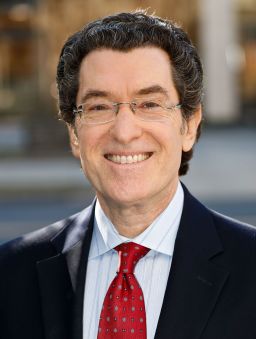Editor’s Note: Norman Eisen is a CNN legal analyst and editor of “Trying Trump: A Guide to His First Election Interference Criminal Trial.” He served as counsel to the House Judiciary Committee for the first impeachment and trial of then-President Donald Trump. The views expressed in this commentary are his own. Read more opinion at CNN.
CNN
—
After the high drama of Monday’s conflict between Justice Juan Merchan and defense witness Robert Costello, and with the jury in the Manhattan criminal trial of former President Donald Trump being dismissed Tuesday as both sides hashed out jury instructions, my expectations for the day were low. But as has so often been the case, day 20 of the proceedings exceeded expectations.
Part of the reason for those modest hopes was the fact that the defense case would not include testimony by the defendant. That would have been suicidal because of Trump’s notorious penchant for false statements that was on exhibit in his daily press availabilities and because the judge had already ruled that he could be extensively cross-examined on his prior wrongdoing. Nevertheless, it contributed to the anticipated sense of anticlimax.
That left us with Costello as the defense’s main witness. And that contributed to Tuesday being another pivotal day, with the defense losing points it could ill afford when prosecutors resumed the cross-examination of Costello, a lawyer who once advised former Trump fixer Michael Cohen. Later, the charging conference to agree on jury instructions showed how daunting the law is that Trump faces.
Assistant District Attorney Susan Hoffinger skillfully crossed Costello with his own words, insinuating that he attempted to “control” Cohen to the benefit of then-Trump lawyer Rudy Giuliani and his client — and prevent him from cooperating with the authorities. She took Costello through his own emailed words in which he told Cohen that he had “friends in high places” — which Costello confirmed referred to Trump — and that Cohen should “sleep well tonight” knowing that.
Those emails both undermined the defense witness and at the same time supported the prosecution case by offering evidence that Trump was keeping a sharp personal watch on Cohen in order to maintain his loyalty after the FBI raided Cohen’s office and hotel room in 2018 as part of an investigation including the $130,000 hush money payment at the heart of the trial. Prosecutors allege that the purpose of the payment to adult film actress Stormy Daniels (who said she had a sexual encounter with Trump), was concealed in fraudulent business records. The DA also says that the payment benefited his presidential campaign and amounted to an illegal campaign contribution.
Like the “Eye of Sauron,” the attention of the supernatural villain in “The Lord of the Rings,” this eye on Cohen, as described in court, was an uncomfortable gaze.
The jury appeared sympathetic to the narrative Hoffinger was reinforcing during this cross and continued to show hostility to Costello. Some jurors rolled their eyes at the witness and smiled when she took jabs at him. “That email speaks for itself, right?” she asked, parrying Costello’s answers by feeding him back his snide retort about emails that he made during Monday’s testimony, when the witness’s confrontations with Judge Juan Merchan led him to warn Costello that his “conduct is contemptuous.”
Juries take their cues from the judge, and this jury could see Merchan’s visible annoyance with Costello on Monday; that likely colored their view of him as well.
All of that is bad news not just for Costello, whose clash with Merchan won Trump’s praise outside the courtroom Monday, but also for the defense. Because Costello was one of Trump’s only witnesses, there is also the risk that he — and the jury’s reaction to his poor attitude — will taint the defense case overall.
The defense case took another step backward during Tuesday’s charging conference, in which the judge heard from both sides about how he should instruct the jury on the law and resolved a series of disputes about what he would say to them. The problem for Trump is that even though Merchan decided some questions in the defendant’s favor (in his usual even-handed manner), the law that jurors must follow in arriving at their verdict is unfavorable for Trump.
To take perhaps the most notable example, one of the things the DA is seeking to prove is that Trump engaged in a conspiracy to promote his election “by unlawful means.” The defense wanted an instruction that the jury must unanimously agree on what the unlawful means were. But, as prosecutors pointed out, New York law requires no such thing. As long as each juror finds some law was broken they do not have to agree on what it is. Each juror can pick their own adventure, so to speak, as long as each picks at least one.
“The importance of the law is not deviating from the law; it’s to apply the law as consistently as possible, as the court would do in every other case. That is, there’s no reason to rewrite the law for this case,” Assistant District Attorney Matthew Colangelo pointed out, and the judge agreed, saying, “I’m not going to do that.”
Between this and much more law that’s unfavorable to Trump, Costello’s calamitous performance and Cohen’s solid one on redirect, I thought the net effect of the past two days was to take the overall points tally all the way back to where the prosecution was last week after Cohen’s direct examination — past the critical threshold of reasonable doubt.
There was little the defense could do about the law in the charging conference beyond their usual able argument. But they would have been better off not to call Costello, just as they are better off for not having called Trump to the stand.
Credit: Source link




